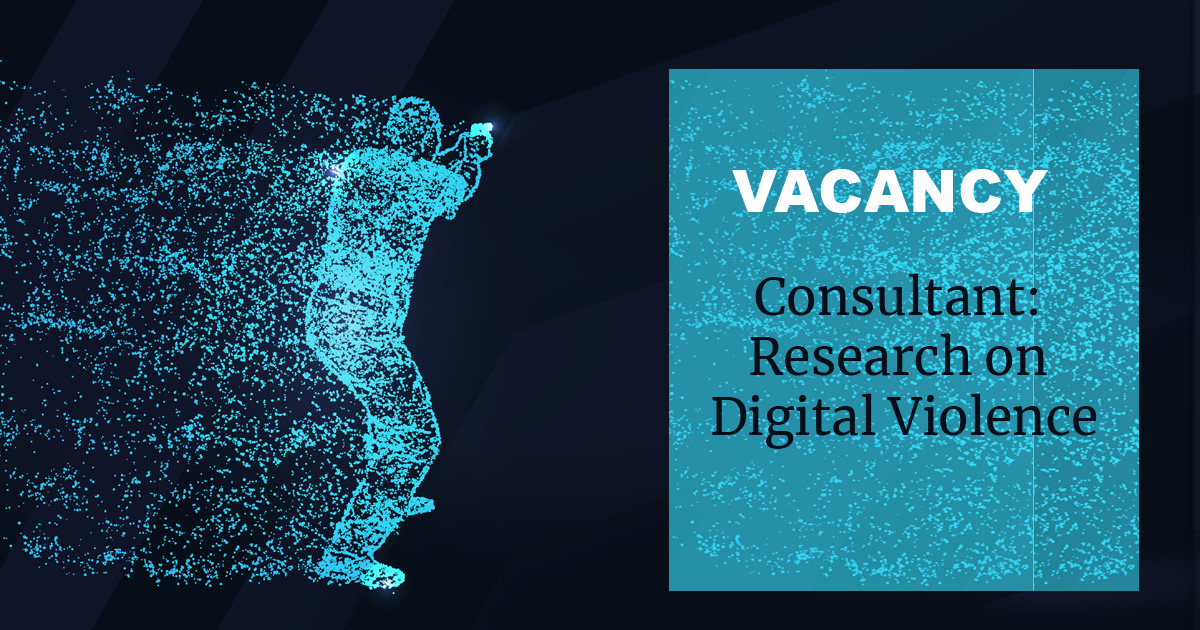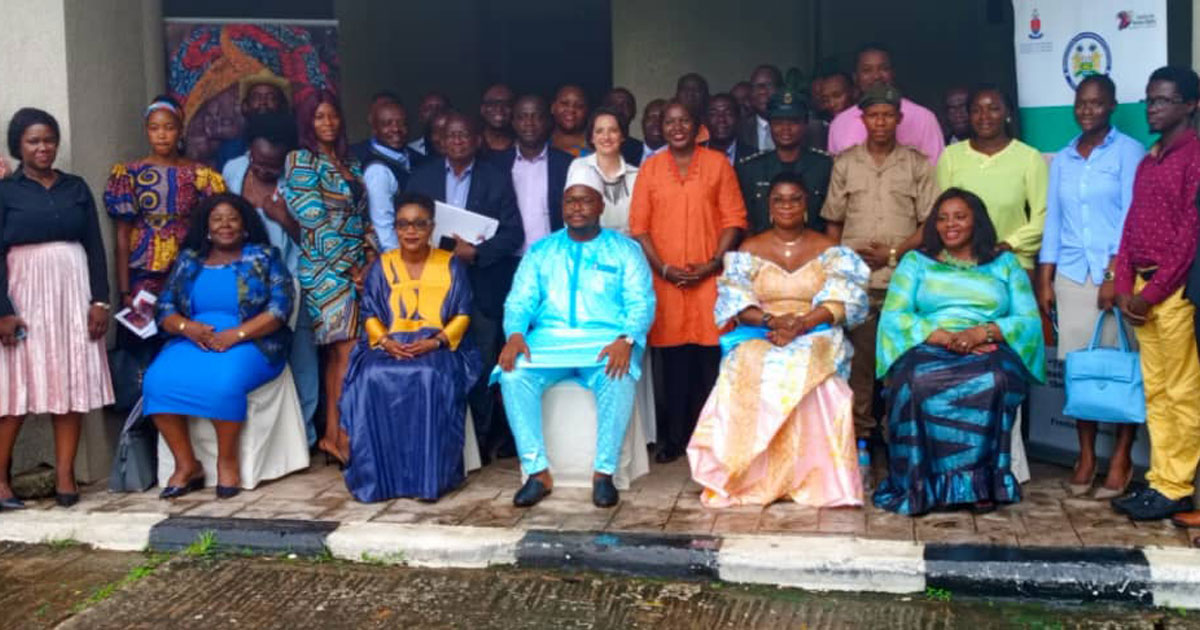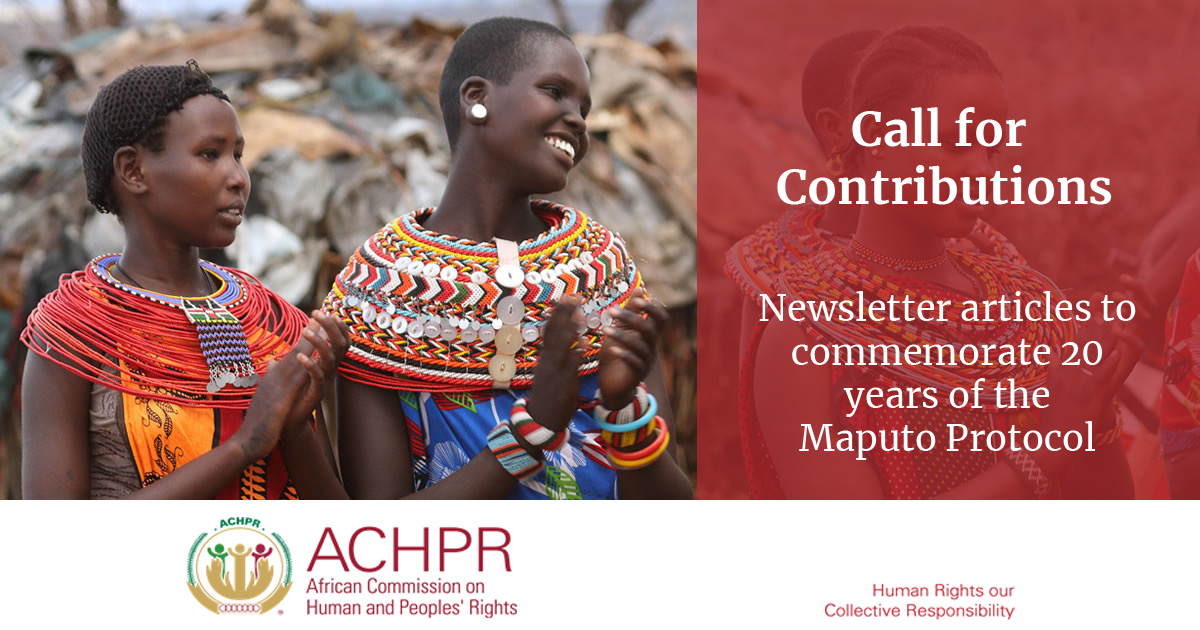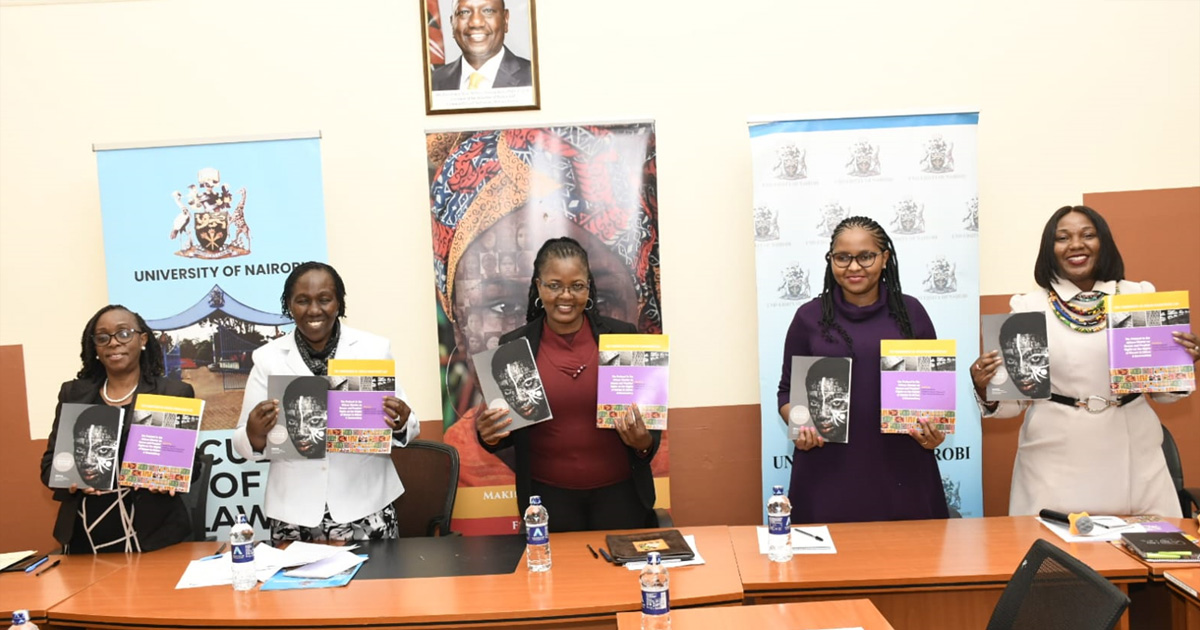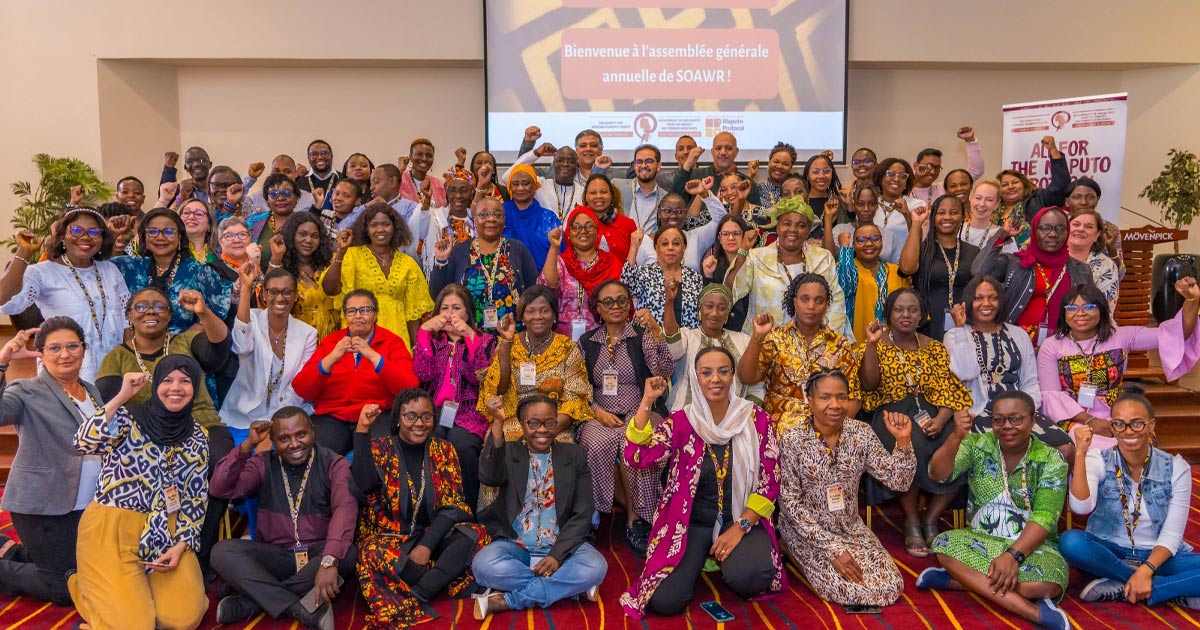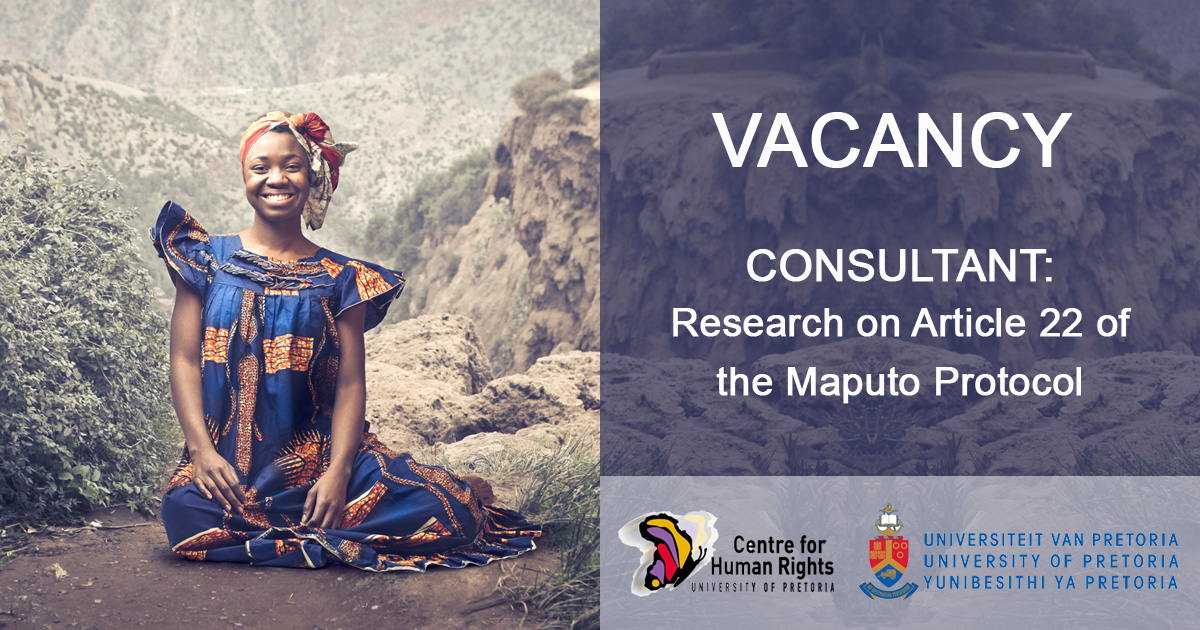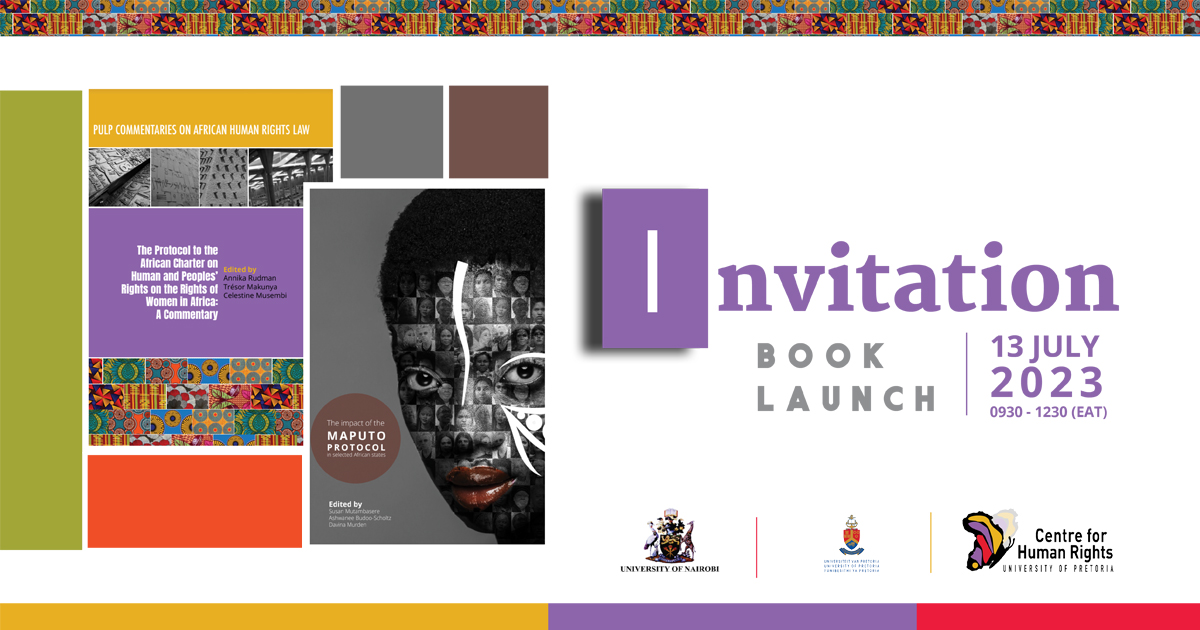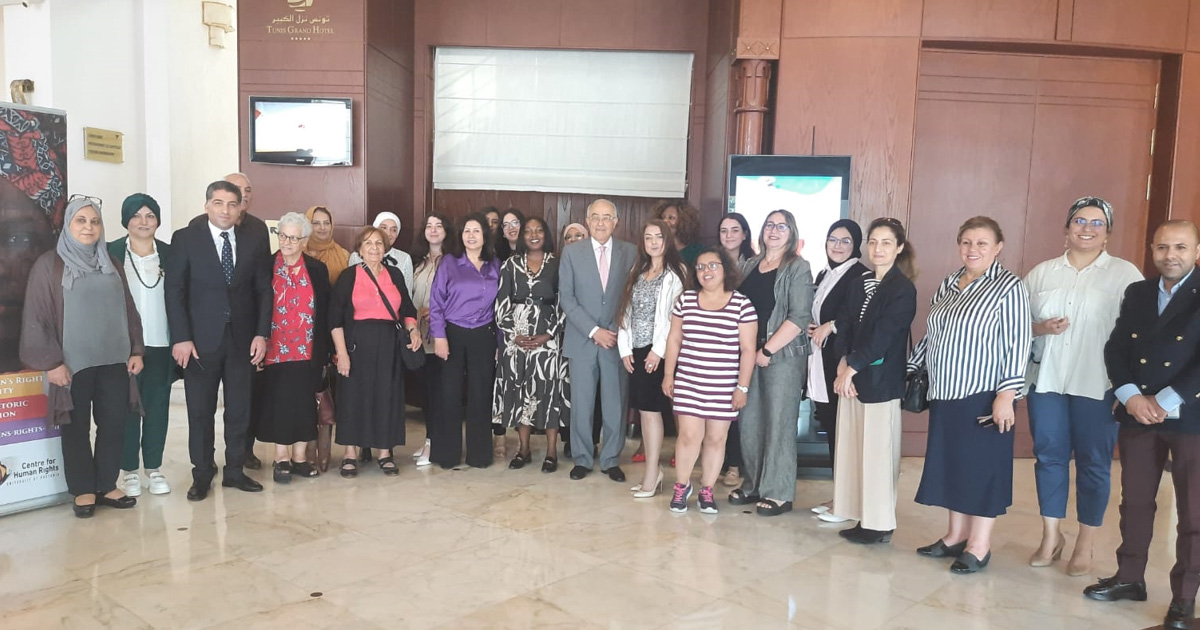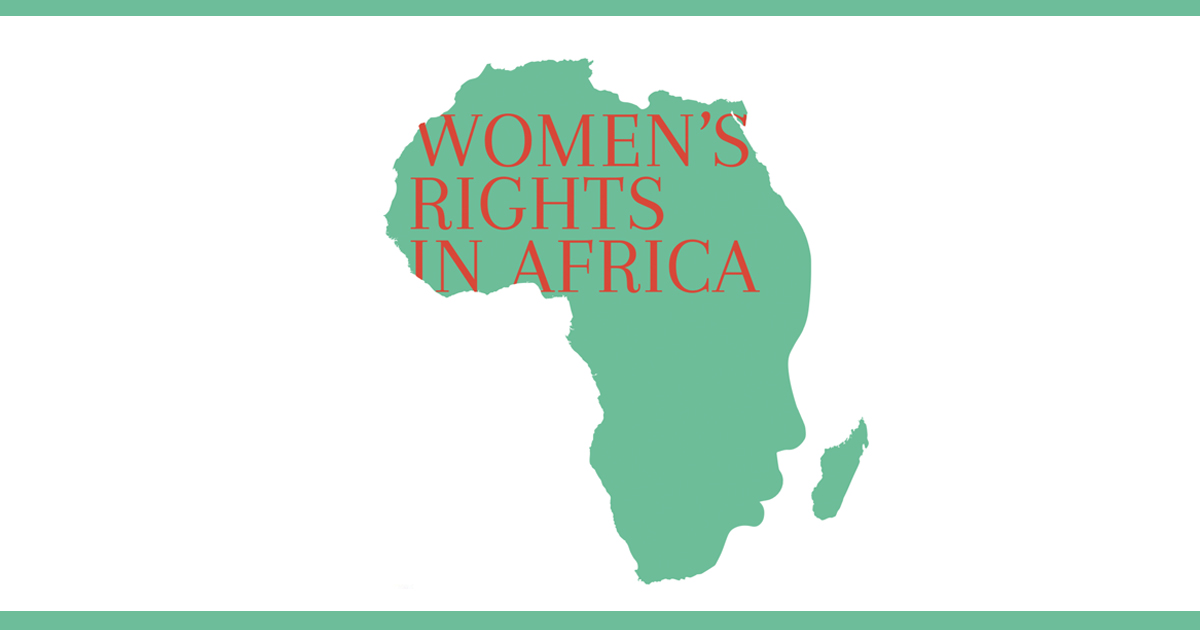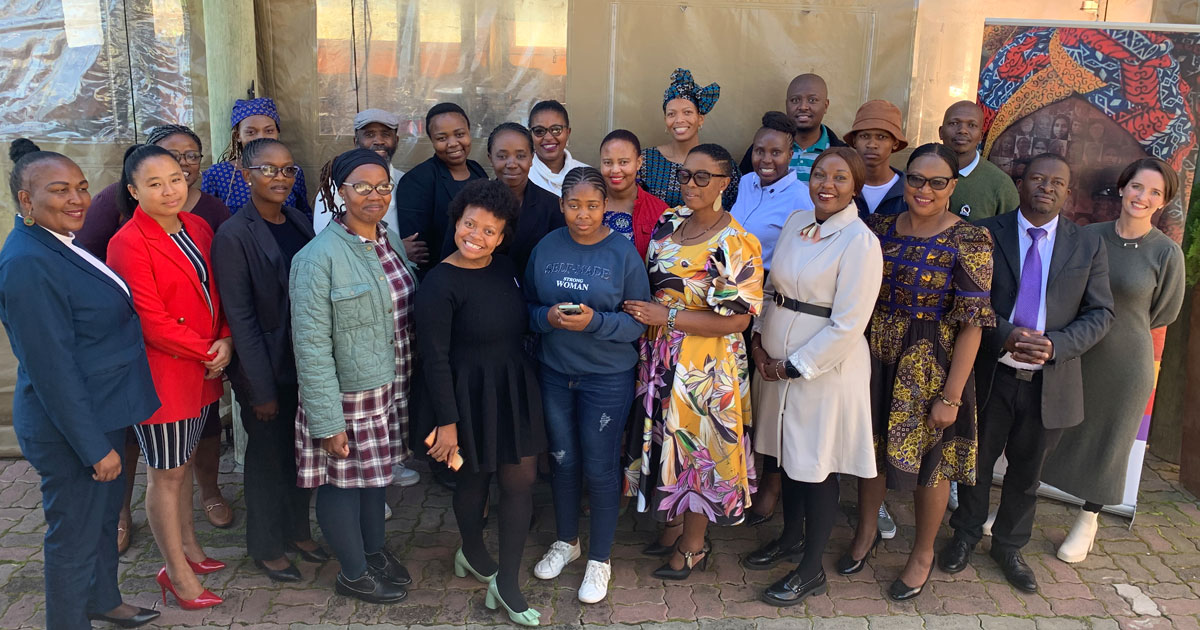- Details
The Centre for Human Rights, Faculty of Law, University of Pretoria seeks the consultancy services of an experienced consultant with research expertise to conduct a study to document the impact of digital violence on Sexual and Reproductive Health Rights (SRHR) of women in Africa and measures taken by states to protect women from and respond to violence in the digital sphere.
- Details
The Centre for Human Rights, University of Pretoria (the Centre), and the Ministry of Foreign Affairs and International Cooperation (MFAIC) held a two-day Validation Workshop on the State Report of the Republic of Sierra Leone as required under the African Charter on Human and Peoples’ Rights (African Charter) and the Protocol to the African Charter on Human and Peoples’ Rights on the Rights of Women in Africa (Maputo Protocol). The Workshop was held from 1 to 2 August 2023 in Freetown, Sierra Leone. Sierra Leone ratified the African Charter in September 1983 and the Maputo Protocol in July 2015, and as of January 2023, had three outstanding reports on the African Charter. Sierra Leone is also yet to report on the Maputo Protocol since ratification.
- Details
To celebrate 20 years of the Protocol to the African Charter on the Rights of Women in Africa (Maputo Protocol), the African Commission on Human and Peoples’ Rights (Office of the Special Rapporteur on the Rights of Women in Africa) calls for newsletter article contributions.
- Details
To mark the 20th anniversary of the adoption of the Protocol to the African Charter on Human and Peoples’ Rights on the Rights of Women in Africa (Maputo Protocol), the Centre for Human Rights, University of Pretoria and the Faculty of Law, University of Nairobi launched two books published by the Pretoria University Law Press (PULP). The book launch took place in Nairobi, Kenya on 13 July 2023. The publications were launched in celebration of the Maputo Protocol turning 20 on 11 July 2023.
- Details
As part of the African women’s movement, the Centre for Human Rights, Faculty of Law, University of Pretoria, and the Solidarity for African Women’s Rights (SOAWR) convened with other women’s rights organisations in Nairobi, Kenya for the Annual General Meeting on 9 July 2023. The SOAWR AGM took place ahead of a two-day celebration of the Maputo Protocol anniversary on 10 and 11 July 2023 in collaboration with the African Union and the Government of Kenya, as the host state. The Centre financially supported representatives of 5 member organisations based in the Southern Africa region to participate in the AGM and the pivotal anniversary celebrations on 10 and 11 July 2023.
- Details
In pursuit of the ideals of excellence, the University of Pretoria wishes to invite applications for the following vacancy. The University of Pretoria's commitment to quality makes us one of the top research Universities in the country and gives us a competitive advantage in international development.
- Details
The Centre for Human Rights, Faculty of Law, University of Pretoria and the Faculty of Law, University of Nairobi cordially invite you to a launch of two publications recently published by the Pretoria University Law Press. The two publications will be launched in celebration of the 20th anniversary of the Protocol to the African Charter on Human and Peoples’ Rights on the Rights of Women in Africa (Maputo Protocol). The Maputo Protocol turns 20 on 11 July 2023.
- Details
The Centre for Human Rights, Faculty of Law, University of Pretoria (Centre) and KADIRAT, Tunisia hosted a three-day Workshop on State Reporting under the African Charter on Human and Peoples’ Rights (the African Charter) and the Protocol to the African Charter on Human and Peoples’ Rights on the Rights of Women in Africa (the Maputo Protocol) from 15 to 17 June 2023 in Tunis, Tunisia. The overall objective of the workshop was to strengthen Tunisia’s capacity to comply with its state reporting obligations under the African Charter and the Maputo Protocol. The Workshop was also aimed at disseminating information to non-governmental stakeholders on the African human rights system.
- Details
On 15 – 19 May 2023, the Centre for Human Rights, Faculty of Law, University of Pretoria (the Centre) hosted an Advanced Human Rights Course on Women's Rights in Africa.
- Details
The Centre for Human Rights (the Centre) in partnership with Women in Law in Southern Africa (WLSA), Lesotho hosted a one-day stakeholders’ meeting on compliance with the concluding observations and recommendations under the Protocol to the African Charter on Human and Peoples Rights on the Rights of Women in Africa (Maputo Protocol). The meeting took place in Maseru, Lesotho on 13 April 2023.

